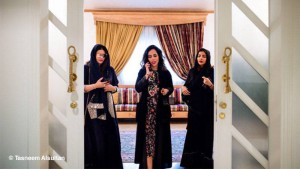According to the Environment Agency – Abu Dhabi, the six member countries of the Gulf Cooperation Council have begun building solar plants with investments amounting to US$155 billion. These plants will have a generation capacity of 84GW and will be completed in 2017.
Saudi Arabia and the United Arab Emirates are the countries with the most solar projects underway. The UAE aims to limit excessive energy consumption through policies related to managing the demand. The Environment Agency of Abu Dhabi is carrying out a study which will enable them to evaluate the effect of climate change on the Arabian Peninsula for first time. The preliminary data collected will be used to set up systems and legislation to combat this phenomenon.
The Arab Emirates has been a pioneer state in renewable energy. Abu Dhabi and Dubai have an objective that by 2020, 5-7% and 5% of their electricity respectively will be produced from renewable energy sources. Among the UAE’s renewable energy initiatives, those that stand out are the Shams 1 solar project (100MW) in Abu Dhabi and the planning of Shams 2 and 3, as well as the announcement of the construction of a solar plant of 100MW in Dubai.
The emir of Kuwait announced that 15% of the country’s energy needs will come from renewable energy sources by 2030.
Bahrain has created a new unit of renewable energy and the rationalization of electricity consumption where ministerial efforts to benefit from renewable energy will converge. The national goal is to obtain 10% of electricity from renewable energy (solar and wind) in 2030. The state has established a plan for the construction of new plants with a cost of US$2 billion.
Qatar’s energy diversification aims are to cover 20% of its electricity needs with renewable energy by 2024 and generate 1,800 MW of clean energy by 2020.





Aún no hay comentarios, ¡añada su voz abajo!